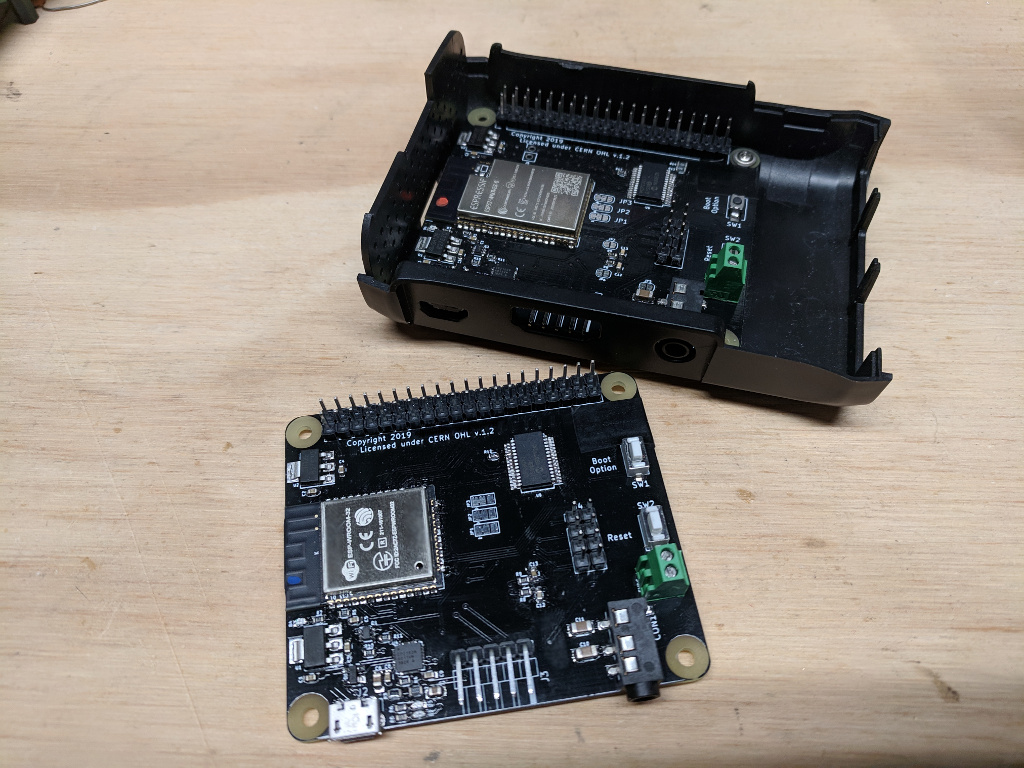
The bottom one is a prototype before I made it able to handle the WROVER-B. The current board will support either.
Independent 3.3V supplies for the GPIO and the ESP32 helps a little with supply noise, the boards I'm waiting on have solder jumpers to bypass the low pass filter and DC blocking caps in case you want to do something more interesting than output questionable quality audio.
Tested: I2C/SPI/GPIO functionality and an I2S DAC (The adafruit 3W amplifier one and the Pimoroni "Phat DAC")
MicroUSB is power and has the silicon labs USB-->UART on board, reset/program handled via the USB interface or, if desired, a UART can be used with the TX/RX on the 40-pin GPIO and you can use the buttons. All the GPIO of the 16-bit expander are available, all headers provide Gnd/3.3V/5V.
I've used MicroPython, the Arduino core, and Ka-Radio to test out the hardware.
This design will be released under the CERN OHL license, I am working on a campaign to be able to bring these to some level of production first, and I recently discovered the Snap EDA licensing is not friendly to sharing the original design files on sites like Github, so I need to "clean" my project of any of their symbols/3D models before I can upload.
I had named this project "ESPi32", however I found another project idea on here posted about a year ago with that name when I started searching around to make sure I wasn't going to run into trouble. (Hence the tape on the boards pictured, I don't want anything with that name on it out there to avoid confusion/controversy) As I'm no good at naming things and like geology, I'm simply calling it Obsidian ESP32. It's black and has an ESP32 on it.
A final thought, reflow soldering on a hotplate works amazingly well, but I still hate being a human pick and place. I'm getting a quote on 10 fully assembled units now to walk through the process and assess the quality I get back.
